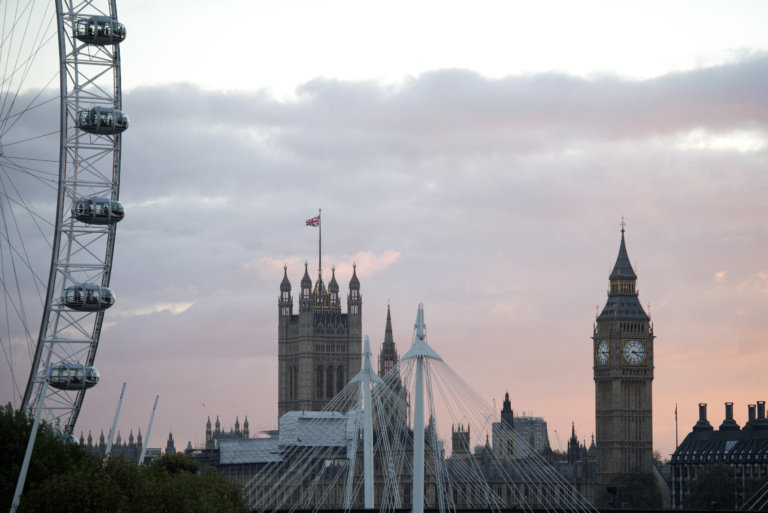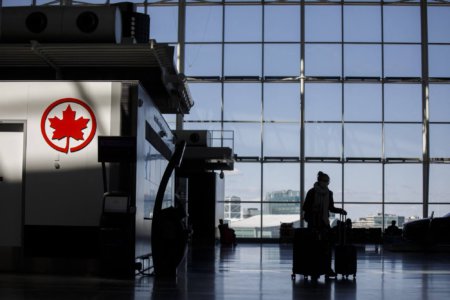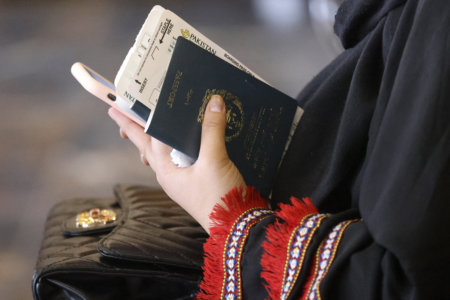
The UK has released its global universities list used to select High Potential Individual (HPI) visas, and critics have voiced their concern that graduates of African universities have been left out of the list. The HPI route is a short-term UK work visa for graduates of top universities who have the potential to benefit the UK workforce.
The new UK work visa scheme, launching on May 30, 2022, aims to attract high skilled overseas talent who have graduated from some of the world’s top universities. It allows graduates to come to the UK without a job offer. Individuals can apply for the HPI route if they have graduated from an eligible international university in the five years immediately before their application.
“Those granted will be given a two-year work visa (three-year for those with a PhD) and will be permitted to move into other long-term employment routes, subject to meeting the eligibility requirements,” Minister for Safe and Legal Migration Kevin Foster previously said in a statement.
The list features 37 universities for the 2021 graduation year, including those from the US, Hong Kong, Switzerland, Sweden, Japan, Canada, Singapore, France, China, Australia and Germany. Notably absent are African universities, among those from other countries.
The UK government has a different list for each graduation year.
with all due respect this 🧵is a very bad take on UK immigration system & HE
1. this new visa continuous to (re)produce racist & colonial relations of who is allowed & deserving to move between borders
2. that unis based in GN produce “excellent” students versus GS unis 1/5 https://t.co/6nqN1S9pge— Laura Loyola (@wawisloyola) April 12, 2022
Criticisms of unfair assessment
The list of universities for the new UK work visa route drew criticism from those in the education sector.
Association of African Universities (AAU) secretary general Professor Olusola Oyewole was quoted saying by Mail and Guardian: “I believe Britain is unfair to African graduates, using the ranking of universities as a criterion for engagements.” He added, “The UK is wrong to assume that graduates from high-ranking universities are more skilled than graduates from Africa.”
Oyewole said the poor rating of African universities does not mean their graduates are inferior to others, adding: “It is only a reflection of the funding and support given to the institutions on the African continent.” He opined that world ranking indices favour long-established universities, which disadvantages African universities “because of their relatively young age”.
Oyewole said with the right facilities, funding and conducive environments, African graduates can be resilient, resourceful and highly innovative in the world of work.

Lack of funding, facilities and an environment conducive for high quality education have kept African universities from reaching the world’s top 50 university rankings. Source: Rodger Bosch/AFP
Lack of funding and resources a major setback
Fulbright scholar Professor Mahfouz Adedimeji suggested that the HPI visa policy would be fairer if it would attract applicants from the top 10 universities of each continent. The vice chancellor of Ahman Pategi University in Kwara State in Nigeria said the new UK work visa route is skewed against universities in the African region.
Many African universities, especially government-owned ones, suffer from poor funding, resulting in low-quality research outputs and a dearth of infrastructure.
Academic Staff Union of Universities in Nigeria president Professor Emmanuel Osodeke attributed the three-month ongoing industrial action in Nigeria’s federal universities to the government’s failure to implement a 2009 agreement seeking revitalisation of the institutions and better working conditions, said the report.
“In the [19]60s and [19]70s, the University of Ibadan [in south-west Nigeria] was one of the best in the world. Today, it is 1 172nd in the world,” he was quoted saying. He added that misplaced priorities are the reason for the setbacks experienced in resources and funding allocation in African universities.
It wasn’t just those from the African higher education sector who were disappointed by the UK’s global universities list. Universities and Research Minister Cristina Messa said she was disappointed that graduates of Italian universities were left out of the HPI route.
“They’re losing a big slice of good graduates, who would provide as many high skills…it’s their loss,” Messa said in an interview with news agency Ansa, adding that Italy would petition the UK government to alter its list to include Italian institutions, reported The Local.










